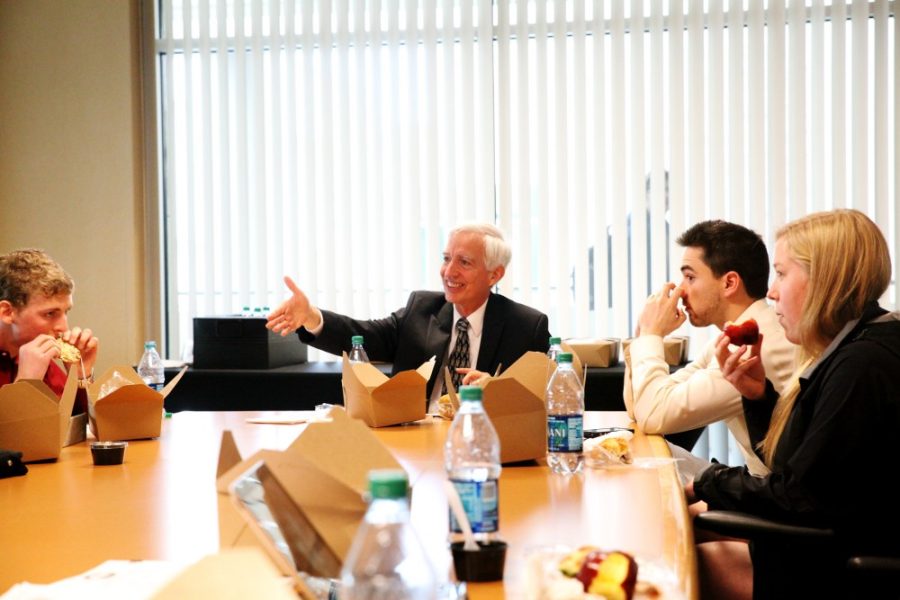A U.S. Department of Education official met with representatives of campus political groups on Monday to discuss President Barack Obama’s education policies as laid out in the State of the Union Address.
The meeting with Ken Bedell, a senior adviser for the Department of Education, was sponsored by the UA’s National Institute for Civil Discourse. Students representing the Young Democrats and College Republicans clubs were in attendance.
Michael Sheridan, a political science junior and vice president of the Young Democrats club, said that the most important thing Obama spoke about was creating a universal pre-kindergarten program in the U.S.
“Studies show … students who went through universal pre-K are more likely to attend university,” Sheridan said.
Nick Mahon, a philosophy, politics, economics and law junior and president of the Young Democrats, said that he was most struck by Obama’s inclusion of class, poverty and economic status in the discussion of education. Mahon said there is a strong correlation between the prosperity of an area and the success of its schools.
“I think [successful education] is very important with the way that our country is headed,” he said.
Mahon asked Bedell how the federal government could be involved in regulating universal pre-K programs on a state level when the states do not consider it a priority.
“If you look at the way that President Obama has attempted to govern, one of the things that he’s done is say, ‘We’re going to focus on the willing,’” Bedell said.
Bedell said that Obama is more likely to work with geographical areas that have a history of working well with the federal government, and that Obama might consider taxing tobacco products in order to create funding for pre-K programs without raising state budgets.
“That would take federal legislation that hasn’t passed yet,” Bedell said.
Austin Gilliland, an economics and political science sophomore, said that he appreciated early education efforts, but was disappointed with the vagueness surrounding the president’s efforts
related to college education.
“[Obama] said he wanted to make sure no one was priced out of a college education, but he didn’t really address the underlying issue,” Gilliland said.
Janelle Gaun, a junior studying hydrology and water resources, said that she thought there was a lack of a real solution for college tuition prices and rising student debt.
Bedell asked the student representatives what they would have the president do about the financial burden facing college students, which he described as taking out a 15-year mortgage and promising 10 percent of your income.
Morgan Abraham, engineering management senior and president of the Associated Students of the University of Arizona, said that he feels the college system is rigged against students from the beginning.
“I think the actual system is where the problem is,” Abraham said.
Abraham said that while he felt there was a problem, he did not have a concrete solution for it.
Caleb Rhodes, an international relations sophomore and director of communications for the College Republicans, said that the expansion of community colleges could reduce the cost.
“For a lot of students, community college would represent a way to get a good education for a lot cheaper,” Rhodes said.
Rhodes added that expanding the community college system might encourage students to spend two years at a community college to alleviate the cost of four years at a university.
Gilliland said that he felt the government should create programs that incentivize degrees with more promising careers, creating a better return on the investment of a college degree.
“All degrees are valid, but there are some that are more hirable,” Gilliland said.









